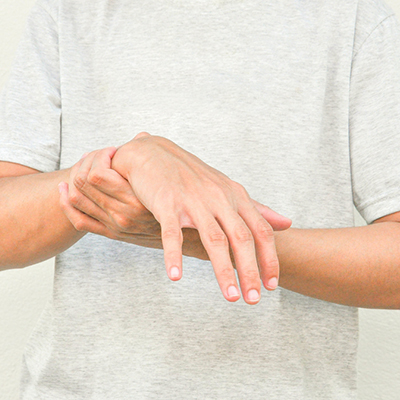Nerve Weakness
Nerve weaknesses, also known as nerve dysfunction or neuropathy, refer to the impaired functioning of the nervous system, which can affect various aspects of an individual's health. Nerve weaknesses can occur due to a range of factors, including:
- Physical trauma: Injuries, such as bruises or fractures, can cause nerve damage.
- Nutritional deficiencies: Lack of essential nutrients, like vitamin B12, can lead to nerve damage.
- Medical conditions: Certain conditions, such as diabetes, multiple sclerosis, or peripheral neuropathy, can cause nerve damage.
- Toxins: Exposure to toxins, like heavy metals or pesticides, can damage nerve tissue.
- Infections: Certain infections, such as shingles or Lyme disease, can cause nerve damage.
Symptoms of nerve weaknesses:
- Numbness or tingling sensations
- Weakness or paralysis
- Muscle cramps
- Pain or burning sensations
- Difficulty coordinating movements
- Loss of sensation in specific areas

Types:
- Peripheral neuropathy: Affects the nerves outside the brain and spinal cord, causing numbness, weakness, and pain in the hands and feet.
- Autonomic neuropathy: Affects the nerves that control involuntary functions, such as heart rate, blood pressure, and digestion.
- Cerebral neuropathy: Affects the nerves in the brain, causing problems with speech, movement, and cognitive function.
- Motor neuropathy: Affects the nerves that control voluntary movements, leading to muscle weakness and paralysis.
Treatment:
- Medications: To manage symptoms and prevent further damage.
- Lifestyle modifications: Such as maintaining a healthy diet, exercising regularly, and getting adequate sleep.
- Physical therapy: To improve muscle strength and coordination.
- Surgery: In some cases, surgery may be necessary to repair damaged nerve tissue.
- Alternative therapies: Such as acupuncture or massage therapy to alleviate symptoms.
Around the clock, around your needs.
0863 - 2450666

